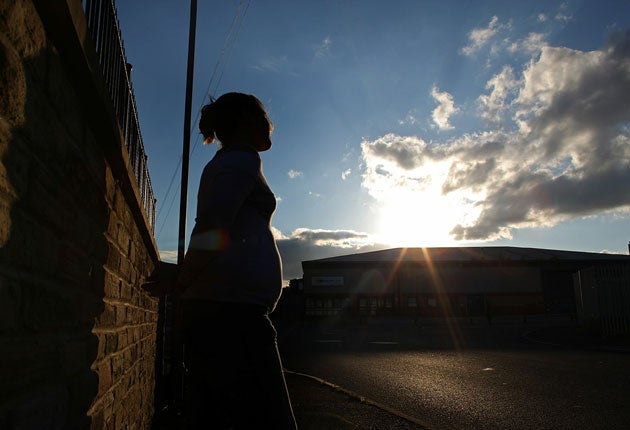British stories of Nigerian Cinderellas are no fairy tale
Slavery still exists in modern-day Britain. And how we treat victims is not pretty

Ely was born in Nsukka, a small town in Nigeria.
“When I was about six years old, after my father’s death,” she says, “I was sent to work in his friend’s house in return for education. My family were not able to pay my school fees. I stayed with this family for about 12 years. I worked for the family, initially caring for their baby and working as a domestic worker. I was regularly beaten and, on one occasion, I was beaten so badly that I needed stitches in my head.”
At the age of 18, Ely was recruited to work for a new employer, based in the UK. She was told that she would be well looked after and promised £400 a month, three days off a week, money for a computer course and health care. Her passport and her migrant domestic worker visa were arranged by her new employer. Ely, however, ended up being exploited again. Her passport was withheld, she had no days off, she was sexually abused, paid only sporadically and her movements were restricted by her trafficker. After a few years, Ely became ill but was allowed only minimal access to medical services.
“My trafficker often threatened me with prison if I tried to escape… I reached a stage where I felt suicidal.”
Eventually, a female door-to-door preacher gave Ely the Citizen’s Advice Bureau’s number and she managed to escape. With the help of other organisations, such as Kalayaan and the Poppy Project, Ely managed to slowly rebuild her life, and avoided falling once again into a trap of domestic servitude.
Ely’s story is one of forty tales of Nigerians trafficked into the UK that are published in a new IPPR report. The report highlights the need for an end-to-end approach to tackling human trafficking, beyond just border control.
The UK’s response to human trafficking has certainly come a long way since the days of ad hoc police raids and support provided solely through charity-funded voluntary sector agencies. The government’s human trafficking strategy marks an opportunity for the UK to put its learning into practice and respond to the issue more effectively. There are, however, still significant gaps in the current system for addressing various forms of trafficking, particularly trafficking for the purpose of domestic servitude.
Under the new system, migrant domestic workers like Ely are no longer allowed to change employer, a key feature of the previous visa. They are also no longer allowed to renew their visa while in the UK, and are legally required to enter and leave the country at the same time as their employer.
With this new visa regulation, domestic workers who have had a similar experience to Ely will no longer have the option to stay in the UK and seek a new employer, and may therefore be more reluctant to come forward to report abuse.
Last year, Home Secretary Theresa May said that revisions to the Overseas Domestic Workers visa were designed to ensure that this route is not abused by unskilled workers wishing to enter and settle in the UK. This fits with the government’s wider policy of seeking to reduce net migration to the UK.
But campaigners supporting migrant domestic workers argue that migrant domestic workers have a negligible impact on overall migration. A report by Kalayaan suggests that only five per cent of Overseas Domestic Workers settle in the UK. Moreover, according to the Trades Union Congress, Overseas Domestic Workers have a minimal impact on local employment and services, with the tax they pay exceeding the public costs of their stay in the UK.
The IPPR report shows that stringent immigration policies are not necessarily effective at addressing trafficking and can increase opportunities for exploitation. It argues that the government should re-establish the domestic worker visa with its previous basic entitlements to allow people like Ely to change employer, and extend these regulations to diplomatic households.
A comprehensive anti-trafficking strategy should also provide greater opportunities for trafficked people to pursue civil as well as criminal cases against their employers. In civil cases, the burden of proof is lowered and the financial penalties can be a deterrent to traffickers, particularly those operating alone or on a small scale. Civil cases can also deliver meaningful justice for the victims of trafficking. Reform of the employment tribunal system would be an important step in the right direction. Furthermore, temporary residence permits should be issued to people who need to stay in the UK to pursue a civil case in the same way that they are issued to those pursuing criminal cases.
In tackling human trafficking, we are helping to stop the spread of modern day slavery. Implementing these changes would be a welcome step.
Myriam Cherti is Senior Research Fellow at IPPR

Join our commenting forum
Join thought-provoking conversations, follow other Independent readers and see their replies